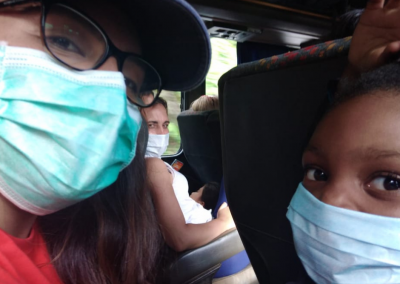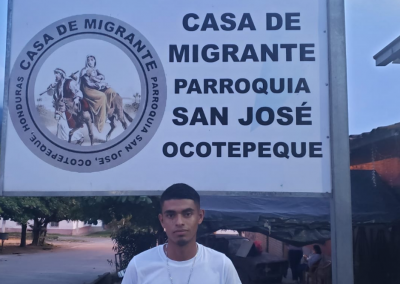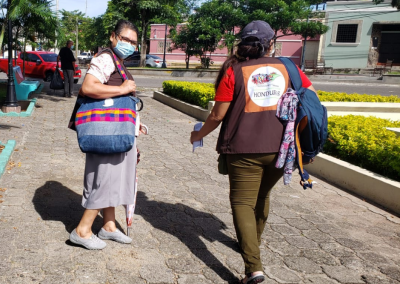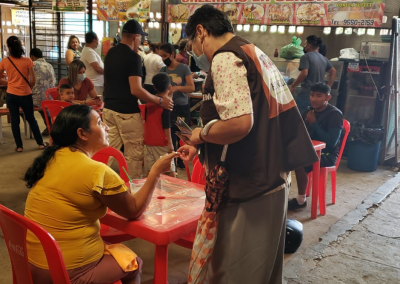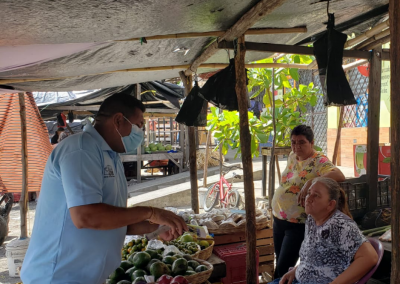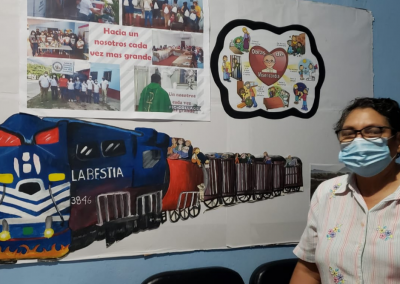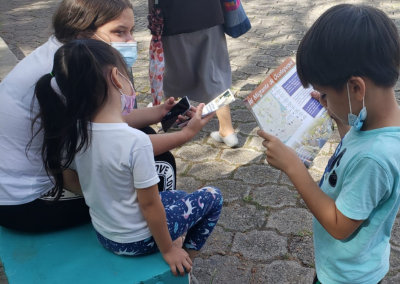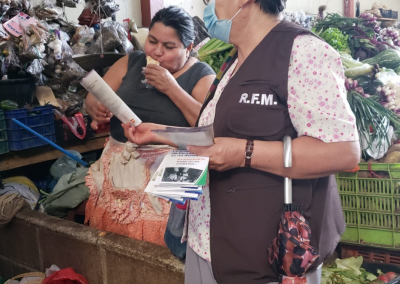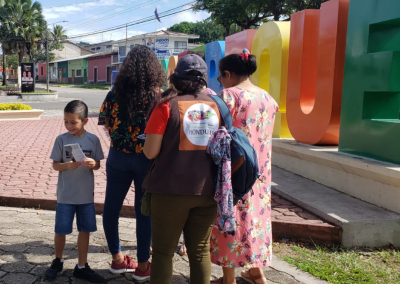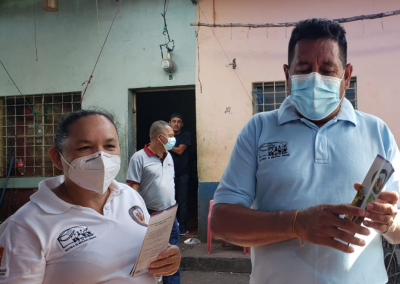On Friday, October 8, I participated together with Sister Ludivina Hernández, a member of the Sisters of the Holy Rosary, in the aission organized with Red Clamor Honduras Chapter, near Ocotepeque, Honduras and along the route taken by those who undertake forced migration. This route from Tegucigalpa comprises around 434 km with an approximate time of 12 hours, boarding two different urban transports.
The objective of this missionary experience was to integrate the celebration of the month of missions in the Church with the migratory flow as part of the reality of Honduras, responding in turn to the call of Pope Francis Towards and even wider “WE.” Also, as the Franciscan Network on Migration Honduras Team, one of our objectives is to work with the organizations and institutions that are accompanying and welcoming the migrant and deported people in Honduras.
I will share from my perspective and how I felt in this mission journey together with Ludivina. At the time of departure of the first bus to Santa Rosa de Copán, I was surprised to see the number of Afro-descendants that until now I assumed to be our Honduran Garífuna brothers and sisters. I was struck by their alert gaze and monitoring of the children and youth. At the Zambrano police station, a policeman stopped us, and got on the bus. He asked them: How much did they charge you? And one of them who understood him replied: 12 dollars (288 lempiras, Honduran currency). The policeman took out his cell phone and then said, “Okay, if you get overcharged, they should give you money back.” At that moment I realized, they are Haitians, and I valued the fact as a positive experience, since there was no abuse for being migrants in the transport charge, in turn the police guaranteed their right to free transit.

Later, when boarding the second urban transport, we were witnesses of a double charge for the fare on the way to the border. At this point, we could not be indifferent to the anger that Haitians showed for the excessive charges. I admired their strength in defending their rights by denouncing the arbitrary abuse of the bus conductor, one of them expressed with indignation: “We are all the same, no matter the color, they must charge us the same.” Sister Ludi reacted by questioning the collector for his unjustified actions, rebuking him that he should return his money. As a reaction, the conductor threatened that they would leave them halfway.
These are some of the humiliations that we have come to witness from these transport companies in which they take advantage of the vulnerability of the migrant during their journey in Honduras. It is regrettable and reprehensible that these xenophobic and racist actions take place, especially being a country with a reality similar to that of Haiti.
Upon arriving in Ocotepeque, we said goodbye to the Haitian migrants. At San José migrant shelter, we were received with great hospitality by the members of the Pastoral de Movilidad Humana team. This house is a transit shelter which has for 25 years (since 1996) been serving and providing a warm welcome and assistance to domestic and foreign migrants. It is a space that provides hospitality, food, hygiene, support in physical health and documentation procedures for the care of migrants deported by land from Mexico and migrants passing through.
Our activities included the delivery of leaflets with information for migrants. We passed out these flyers to all the migrants we encountered while touring the park, the market and the bus station terminals, in order to publicize and provide adequate information to passing migrants.
Subsequently, exercises were carried out with the team from the migrant shelter house related to strengthening individual and collective work, to strengthen skills for psychosocial care. Also, we were able to observe the team in their daily service to migrants, in which had the opportunity to be involved and a part of the work they do. We had the pleasure of witnessing the dance group that they invited to share the joy of their 25 years of service, a moment of conviviality that made us feel part of the shelter, and ending this day with the Eucharist.
We are grateful for the hospitality and expressions of affection from María Elena, Miguel, Roel, Enrique and Sixto, members of the PMH team of the San José house, who confirm with their service that migrant shelters are a place of learning and human growth. This reminds us of the Pope’s phrase during his visit to Chile in 2018: “Let’s learn and let ourselves be impregnated by the values, wisdom, and faith that immigrants bring with them.” This call motivates each of us to continue to be the open door and the response of encouragement for migrants who seek in their transit to be valued, welcomed and respected in their dignity.


